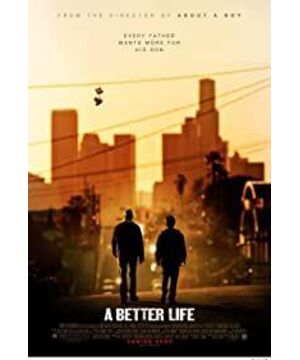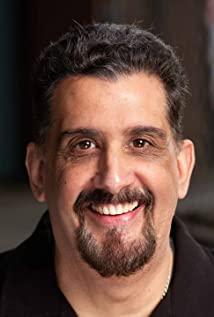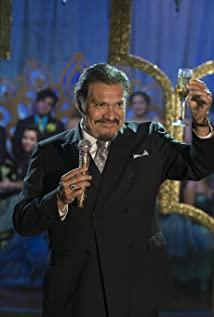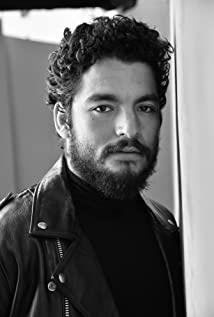Father: "..., don't say that, don't say that..."
What's the point of all this? To live, to live until there is no way to live? To live to repeat this humble life from generation to generation? Live to be constantly hurt by others in order to live? To live to do whatever it takes to survive, to distort humanity, and to go to destruction? Live until you betray your own past, betray your own culture and roots? No, even in the most difficult circumstances, people, most people will still go for a better life! Please believe in human nature! Because of this better life, people are making progress, until today! This better life is to enjoy the rights in the Declaration of Human Rights, to have the guarantees in the Second Bill of Rights that Franklin D. Roosevelt hoped, to be with family, to be an upright, loving and beautiful person, to be To be a person who is responsible to others is to work hard for a more meaningful goal! "A BETTER LIFE" brings people such a belief! The film not only reflects the life and problems encountered by illegal immigrants in the United States, but what is even more valuable is that it transcends immigration issues and uses human nature to talk about people. The spirit revealed there is shocking! And because in reality, no matter the middle and upper classes in Eastern and Western societies are more and more deviated from human nature, and their souls are eroded by various things, watching the story of the Mexican father and son in the movie can touch people's hearts even more!
Fourteen years ago, Carlos and his wife smuggled into Los Angeles from Mexico to earn a living. Like other illegal immigrants, at the beginning, they live in no fixed place, wander, have unstable jobs, and have low incomes, waiting every day for job opportunities. They gave birth to a boy, Louis. But his wife changed because of this kind of life, and could no longer be satisfied with this kind of life. She left him, married an American, and had a legal identity. And Carlos took Luis to live in the bottom of Los Angeles, in order to avoid being extradited back, endure all kinds of exploitation and hardship as a person without any rights. Six years ago, I met a compatriot who ran a small business, and I was able to stabilize my job as a worker who built lawns and cleaned backyards. They lived in a dilapidated house in the suburbs, and Louis, because he was born in the United States, had the right to attend a bad school nearby.
What this life brings to Carlos, the character created by the film or the director did not complain, get angry or distort the original human nature because of what he suffered, and please believe that this is the real characteristics of this class and group. He works hard every day, has almost no life, entertainment, and spends very little time with his son, although he is always worried about his son. When he travels through Los Angeles, from the area where the illegal immigrant lives to the area where the poor live to the area where the middle class lives, those dilapidated, prosperous, problem or life seem to have nothing to do with it. He is invisible, invisible in this society, but he is not the scum, pitiful idiot, and idiot in the mouth of those who hurt him. He has learned English, he understands the society, he sticks to his beliefs, he insists on being an upright person, and he longs for a better life. But he was afraid, afraid that any plan for the better would be destroyed by ruthless repatriation. Because he can't change, and although he sees the efforts of those marching with the American flag, he can only pin his hopes on his son. In reality, while Obama has been easing policies on illegal immigration in the United States and has continued to work hard, conservative Republicans have been holding back.
And his son, Louis, was fourteen. You know what kind of environment any boy in a single-parent family and his father is often away from because of work lives in the bottom of society. With no manners, a distaste for study, a puppy love, and a dislike for his father's life and work, he was at a turning point. As the gangsters who turned into gangsters told him: If it could be better, I wouldn't join this road that was doomed to death because of a gun or some kind of virus, he was hesitating: continue this meaningless life or join gang. Human nature is always hurt or desperate to do stupid things. He hesitates between the satisfaction of desire and the goodness of human nature.
The change happened suddenly for the father and son. The father's fellow villager had made enough money to go back to his hometown to start a farm. He hoped to sell his small business tools and cars to his father, but the father was still hesitant because of the possible repatriation. If the fellow is gone, he will be unemployed again. When he returned to the same place he had been waiting for work six years ago on the first day of his unemployment, he decided to raise money to buy cars and tools and become a fellow villager: a small employer, doing chores. In the meantime, a fellow who was also waiting to live gave him half a loaf of bread, which made him very grateful. The help of his ex-wife made his wish come true, and he was very happy, even the happiest day of his life. He only bought two things, a statue of God and a jersey and football from his son's favorite team. Sons hear the news, hear fathers say it can change their lives, they'll get better, they'll move to a better house, they'll find a better school. The son's tendency to hesitate becomes a better life for that father. But in order to repay the kindness of the half-bread, the good father hired the fellow who was waiting for work and made him become his role in the past. Help him, give him money. But the immigrant has been twisted by life, and while Carlos was working, he stole the tools for a better life for father and son: cars and tools. A journey of finding cars and tools has become a journey of searching for a better life, and a journey of communication between fathers and sons, allowing sons to understand fathers and choose how to live in the future.
In the process, the cooperation between the father and the son allowed the son to see an upright and kind father, let the son see how his father worked in the past, saw the tragic life of those who came to the United States illegally, and let him see that he has Alienated from his roots and culture. There were contradictions during this period, but in the end, the son saw the effort to pursue a better life from the father, and saw that goal and meaning. My father kept his promise, always understanding and tolerant towards others, especially those in difficult situations, and did not do anything wrong and get what he didn't deserve. These things were revealed to the son during the car search, and the son understood the prejudice and distortion he knew in the past. When they were about to make it, they "stole" the car and tools back, but they ran into the police. The father stopped the car, was arrested by the police and was sent back to Mexico. As described in the movie and shown in reality, even if these immigrants pay taxes, have children or more, there is only a 3% chance of obtaining legal status with the help of NGOs. Father is about to be deported. The son couldn't accept living with the mother who abandoned them. The gang who wanted him to join the gang came to him again, but he changed, and his father made him change. He went to meet his father in prison:
Father: "You asked me why I gave birth to you. I just did what all the men in my hometown do. Marry a wife and come to the north, I don't know any other way out. Your mother and I love each other deeply. But coming here, everything has changed. Your mother has changed, what she wants, I can't satisfy her. It's just me and you, no money, no job, I don't know how to take care of you. I also have anger in my heart. There is only one thing that supports me through this difficult time, and that is you. Taking care of you as you grow is what drives me! I want to give you everything you want, if you can To get ahead, I think it's all worth it. It's for me, to find a reason to live. I'm sorry I'm like this, I'm sorry..."
Son: "No, no, don't be sorry, you always do better Good..."
Father and son sang songs from their hometown and promised each other to live better. . .
I can't hold back my tears when I see this, that's a man, a good man. The helplessness and constraints of reality always impose unnecessary suffering on them!
When at the end of the movie the father and his companions risked their lives and promised to cross the desert for their son, that was enough to bring me to tears.
What a good movie, it uses human nature to show the problem of illegal immigration in the United States. The design of mutual understanding between father and son, on the one hand, is an explanation of the elimination of prejudice against illegal immigrants, and on the other hand, it strengthens the explanation of this better life! And that makes sense for everyone!
Finally, have to compare China's "illegal immigrants": migrant workers! They live in the same country as another group and don't have Carlos' problems. Like Carlos, they had to come to the city to make a living for a better life. They even paid more, suffered more exploitation and suffered more discrimination than Carlos. What is their reason for suffering all this? This hierarchical society, this hierarchical power, this capital erodes a society with no bottom line. They don't have housing, either to rent or buy. Because the middle class and college students are claiming that they have no money to buy or rent a house, how can they have the right to talk about this; their children cannot go to schools in the city, and they cannot enjoy the same civil rights, whether it is education, medical care, social security, or culture and entertainment. . Because some people in the city are saying that educational resources are distributed unevenly and it is difficult to see a doctor, where is your share? Carlos' pain is the pain of globalization, a higher-level problem. And our social problems here are still rooted in the unmodernization of the core, hierarchy, top-down, fragmentation, and castration of political rights. It's all about people who talk about people with vested interests, intellectuals, or people who take advantage of the poor. Such use of human nature, without prejudice, and long-term investment in disadvantaged groups, too few people speak for them. That's how good people are never rewarded, and those who suffer are always prejudiced, and this society is terribly distorted. For a long time in history there has been little real progressive movement, this distortion is constantly being imposed only to be repeated from dynasty to dynasty!
In reality, of course, we also see bottom-up and top-down corrections. Forgive my pessimism, after watching these people for a long time, most of them have not surpassed the futile efforts of the past. . .
View more about A Better Life reviews











